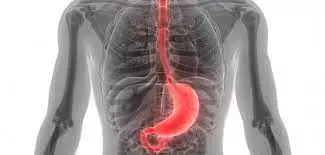- Home
- Medical news & Guidelines
- Anesthesiology
- Cardiology and CTVS
- Critical Care
- Dentistry
- Dermatology
- Diabetes and Endocrinology
- ENT
- Gastroenterology
- Medicine
- Nephrology
- Neurology
- Obstretics-Gynaecology
- Oncology
- Ophthalmology
- Orthopaedics
- Pediatrics-Neonatology
- Psychiatry
- Pulmonology
- Radiology
- Surgery
- Urology
- Laboratory Medicine
- Diet
- Nursing
- Paramedical
- Physiotherapy
- Health news
- Fact Check
- Bone Health Fact Check
- Brain Health Fact Check
- Cancer Related Fact Check
- Child Care Fact Check
- Dental and oral health fact check
- Diabetes and metabolic health fact check
- Diet and Nutrition Fact Check
- Eye and ENT Care Fact Check
- Fitness fact check
- Gut health fact check
- Heart health fact check
- Kidney health fact check
- Medical education fact check
- Men's health fact check
- Respiratory fact check
- Skin and hair care fact check
- Vaccine and Immunization fact check
- Women's health fact check
- AYUSH
- State News
- Andaman and Nicobar Islands
- Andhra Pradesh
- Arunachal Pradesh
- Assam
- Bihar
- Chandigarh
- Chattisgarh
- Dadra and Nagar Haveli
- Daman and Diu
- Delhi
- Goa
- Gujarat
- Haryana
- Himachal Pradesh
- Jammu & Kashmir
- Jharkhand
- Karnataka
- Kerala
- Ladakh
- Lakshadweep
- Madhya Pradesh
- Maharashtra
- Manipur
- Meghalaya
- Mizoram
- Nagaland
- Odisha
- Puducherry
- Punjab
- Rajasthan
- Sikkim
- Tamil Nadu
- Telangana
- Tripura
- Uttar Pradesh
- Uttrakhand
- West Bengal
- Medical Education
- Industry
ACEIs or ARBs may lower risk of mortality in oesophagal and gastric cancer patients

Postdiagnosis use of angiotensin-converting enzyme inhibitors (ACEIs) or angiotensin receptor blockers (ARBs) is associated with a lower risk for mortality in patients with oesophagal or gastric cancer and hypertension, according to a recent study published in the BMC Cancer.
Angiotensin-converting enzyme inhibitors (ACEIs) and angiotensin receptor blockers (ARBs) are used in treating cardiovascular diseases. Previous studies indicated that ACEIs/ARBs may benefit cancer patients by inhibiting tumour angiogenesis and proliferation. The effect of ACEIs/ARBs on cancer survival in oesophagal and gastric cancer is still unclear. This study is to investigate the association between ACEIs/ARB usage and oesophagal and gastric cancer prognosis. This retrospective cohort study identified oesophagal and gastric cancer patients from 2008–to 2016 from the Taiwan Cancer Registry, and obtained medication usage and follow-up information from the National Health Insurance Research Database and Death Registry. Analysis groups were defined as ACEIs/ARBs user or non-user based on the usage of ACEIs/ARBs within the 6 months after a cancer diagnosis. The stabilized inverse probability of treatment weighting using propensity scores was applied to balance covariates between study groups. We also used Kaplan-Meier estimates and Cox regression to compare survival outcomes and estimate hazard ratios (HRs).
Results of the study:
They identified 14,463 and 21,483 newly-diagnosed oesophagal and gastric cancer patients from 2008–to 2016. ACEIs/ARBs users were associated with lower risk of cancer-specific mortality, although only significantly in gastric cancer (gastric: adjusted HR = 0.87, 95% CI = 0.78–0.97; esophageal: adjusted HR =0.88, 95% CI = 0.76–1.02). A better survival outcome was observed among patients who received a higher cumulative defined daily dose of ACEIs/ARBs.
Thus, researchers found that using ACEIs/ARBs after cancer diagnosis was associated with a lower risk of mortality. Our results add to the knowledge of the benefit of ACEIs/ARBs against mortality in individuals with oesophagal/gastric cancer patients with hypertension.
Reference:
Prognostic impact of angiotensin-converting enzyme inhibitors and angiotensin receptor blockers in oesophagal or gastric cancer patients with hypertension - a real-world study by Po-Chih Li, et al. published in the BMC Cancer.
https://doi.org/10.1186/s12885-022-09513-4
Keywords:
Prognostic, impact, angiotensin-converting enzyme, inhibitors, angiotensin, receptors, blockers, esophageal, gastric cancer, patients, hypertension, BMC Cancer, Po-Chih Li, Ru-Yu Huang, Yu-Chien Yang, Kun-Pin Hsieh & Yi-Hsin Yang, Esophageal cancer, Gastric cancer, Epidemiology, Survival analysis
Dr. Shravani Dali has completed her BDS from Pravara institute of medical sciences, loni. Following which she extensively worked in the healthcare sector for 2+ years. She has been actively involved in writing blogs in field of health and wellness. Currently she is pursuing her Masters of public health-health administration from Tata institute of social sciences. She can be contacted at editorial@medicaldialogues.in.
Dr Kamal Kant Kohli-MBBS, DTCD- a chest specialist with more than 30 years of practice and a flair for writing clinical articles, Dr Kamal Kant Kohli joined Medical Dialogues as a Chief Editor of Medical News. Besides writing articles, as an editor, he proofreads and verifies all the medical content published on Medical Dialogues including those coming from journals, studies,medical conferences,guidelines etc. Email: drkohli@medicaldialogues.in. Contact no. 011-43720751


